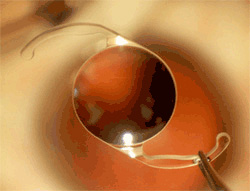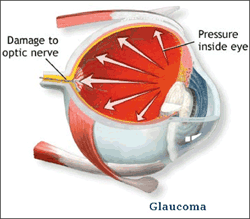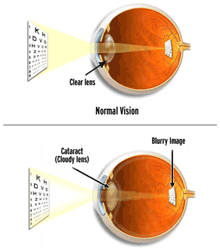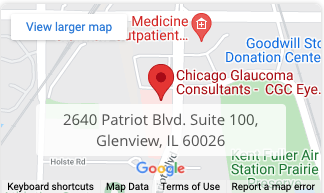General Ophthalmology Specialist
Chicago Glaucoma Consultants – CGC Eye Center
Board Certified Ophthalmologist & Surgeon located in Glenview, IL & Chicago, IL
In adults over age 60, glaucoma is a leading cause of blindness. If you experience eye pain, blurry vision, or other vision changes, see the board-certified ophthalmologists and surgeons for an eye exam at Chicago Glaucoma Consultants – CGC Eye Center, with two convenient locations in Glenview and Chicago, Illinois. They can evaluate your eyes and vision to detect and treat glaucoma before serious eye damage occurs. Schedule an appointment with Chicago Glaucoma Consultants – CGC Eye Center by phone or online today.
General Ophthalmology Q & A

What is general ophthalmology?
General ophthalmology is a branch of medicine that deals with your eye health and vision. Ophthalmologists and surgeons at Chicago Glaucoma Consultants – CGC Eye Center are board-certified and highly trained to ensure you receive exceptional care. They evaluate, diagnose, and treat vision problems and eye diseases, offering surgical procedures when necessary.
What are the benefits of general ophthalmology?
Some of the numerous benefits associated with attending routine general ophthalmology visits at Chicago Glaucoma Consultants – CGC Eye Center include:
- Better vision
- Optimal eye health
- Lower risk of eye diseases
- Early eye disease detection
- Lower risk of permanent vision loss
Your ophthalmologist lets you know how often to attend eye exams based on your symptoms and risk factors for eye diseases, such as cataracts, glaucoma, macular degeneration, and diabetic retinopathy.
Why might I need general ophthalmology care?
Attend a general ophthalmology exam every year unless otherwise specified by your eye doctor, or you experience unusual symptoms. Examples include eye pain, blurry vision, and vision impairment.
Diabetes, high blood pressure, and a family history of eye diseases can increase your risk of eye problems.
What should I expect during my eye exam?
When you arrive at Chicago Glaucoma Consultants – CGC Eye Center for a general ophthalmology exam, friendly staff members greet you. While you relax in a comfortable chair, your provider might complete the following during each session, which lasts 45-90 minutes:
Medical history review
During a medical history review, your eye doctor asks about your personal and family medical history, vision problems, symptoms, and medications you may take.
Visual acuity tests
During visual acuity tests, you read letters and numbers from an eye chart to find out how good your vision is at various distances. You also might look through a special device with different lenses to help your ophthalmologist determine your vision prescription.
Dilated eye exam
During a dilated eye exam, your eye doctor uses specialized eye drops to dilate your pupils to get a better look at different parts of your eyes. They evaluate your side vision, eye movement, and pressure within your eyes to screen for glaucoma.
Glaucoma tests may involve a puff of air or gentle pressure. Numbing drops can eliminate any discomfort.
Your eye specialist can use a slit-lamp microscope to get a better view of the front part of your eye, including your lens, iris, eyelids, and cornea. They check for signs of cataracts, scars, and scratches, and examine your optic nerve and retina.
Diagnostic tests
If you’re at risk of or experience signs of an eye disease, your ophthalmologist might recommend you undergo additional diagnostic procedures, such as:
- Fundus photos
- Fluorescein angiography
- Optical coherence tomography (OCT)
- Topography
- Automated visual field tests
If your eye doctor finds evidence of vision problems or an eye disease, they might recommend vision correction lenses, lifestyle changes, eye drops, medications, laser treatment, injections, eye surgery, or other procedures to optimize eye health and prevent serious complications.
Take care of your eyes and overall health by scheduling routine general ophthalmology exams. Call Chicago Glaucoma Consultants – CGC Eye Center to book an appointment or use the online scheduler today.
Our Location
Chicago Glaucoma Consultants - CGC Eye Center, Glenview, IL
Phone (appointments): 847-510-6000
Phone (general inquiries): 847-510-6000
Address: 2640 Patriot Blvd., Suite 100, Glenview, IL 60026
Glenview Hours
Monday: 7:30 am - 5:00 pm
Tuesday: 7:30 am - 5:00 pm
Wednesday: 7:30 am - 5:00 pm
Thursday: 7:30 am - 5:00 pm
Friday: 7:30 am - 5:00 pm
Saturday: Select Saturdays only
Sunday: Closed



